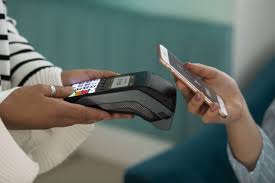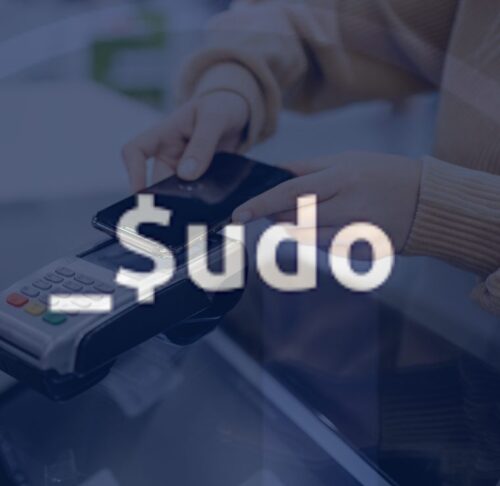
The relentless pursuit of convenience, security, and efficiency has driven continuous innovation in financial technology. The internet revolution of the late 20th century laid the foundation for online payments, which in turn fueled the growth of e-commerce.
Today, digital payment solutions continue to evolve, with digital cards gaining widespread acceptance due to their enhanced security features, such as tokenization and encryption.
Sudo Africa stands out as a leading force among the fintech disruptors transforming Africa’s payment landscape. The card-issuing fintech startup provides an Open API that enables businesses to issue both physical and virtual cards for local and international transactions.
To further drive efficiency and cost reduction in card issuance, Sudo Africa launched Digital First Cards, a groundbreaking solution that eliminates the need for physical cards. With this innovation, customers can seamlessly conduct contactless transactions using only their mobile phones. This advancement empowers businesses, merchants, and individuals to offer customized financial services faster and more securely.
While Nigeria’s digital payments sector has experienced significant growth over the years, contactless payment adoption remains low compared to markets like Europe and China. One of the major barriers being the high cost of traditional card production, which poses a financial challenge for fintech companies and B2B payment providers.
Currently, producing a single card costs between ₦1,800 and ₦2,000, yet the Central Bank of Nigeria (CBN) mandates that they be sold for only ₦1,000, forcing many businesses to operate at a near loss.
This is where Sudo Africa’s Digital First Cards come into play, offering a cost-effective alternative to physical cards. By leveraging cutting-edge digital technology, Sudo Africa significantly reduces card issuance costs, enabling businesses to scale their services without the burden of high production expenses.
The introduction of Digital First Cards is set to revolutionize the financial ecosystem by eliminating the dependency on physical cards while enhancing security, efficiency, and cost-effectiveness. Some of the key benefits include:
Enhanced Security and Fraud Prevention
Sudo Africa’s digital cards are stored securely in the cloud rather than on devices, ensuring protection against fraud. When a transaction is initiated, a temporary encryption key is generated to authorize the payment, preventing unauthorized access to card details.
Additionally, digital cards support dynamic CVVs, meaning a new security code is generated for every transaction, making fraud nearly impossible.
Seamless Transactions via NFC and QR Payments
Digital First Cards integrate with Near Field Communication (NFC) technology, enabling customers to simply tap their smartphones to pay. For devices without NFC capabilities, QR code payments provide an alternative. Merchants can accept payments via NFC-enabled POS terminals or by scanning customer-generated QR codes.
Reduced Costs and Increased Profitability
By eliminating the need for physical card production, distribution, and replacement, businesses can significantly cut operational costs. These savings can be redirected towards expansion, service improvements, and customer incentives.
Convenience and Accessibility
Customers no longer need to carry physical cards, reducing the risks of loss, theft, or damage. The ability to manage transactions via mobile devices enhances customer experience and aligns with the global shift toward digital banking.
Sustainability and Environmental Impact
Sudo Africa’s digital-first approach aligns with eco-friendly initiatives by reducing reliance on plastic-based card production, contributing to a more sustainable financial ecosystem.
Sudo Africa was co-founded by Aminu Bakori and Kabir Shittu, inspired by challenges they faced in a previous startup. While developing a mobile wallet system that consolidated multiple financial institutions into a single platform for seamless transactions, they encountered significant hurdles in card issuance. This frustration led to the birth of Sudo Africa, a solution designed to simplify and streamline card issuing for businesses.

Their vision aligns with industry leaders advocating for contactless payments. Ajibade Laolu-Adewale, Chairman of the Committee of E-Business Industry Heads (CeBIH), emphasized the importance of contactless transactions in mitigating financial fraud risks, reinforcing the relevance of Sudo Africa’s innovation.
Beyond its Digital First Cards, Sudo Africa is making financial inclusion more accessible through:
Faster Card Issuance for Financial Institutions
Traditional banks often take weeks or months to issue new cards, but Sudo Africa’s platform allows businesses to issue cards within days, significantly improving service delivery and operational efficiency.
Bespoke and Customizable Card Services
Sudo Africa’s Open API allows businesses to create and manage their own branded cards, set spending limits, and define usage rules. This customization helps businesses mitigate fraud and optimize financial control.
Embedded Banking-as-a-Service (BaaS)
Through its affiliated microfinance bank, Safe Haven, Sudo Africa offers embedded banking services, enabling companies to create and manage customer accounts, issue account numbers, and provide financial services. This feature accelerates market entry and scalability while ensuring compliance with KYC regulations.
As the demand for secure, cost-effective, and contactless payments grows, Sudo Africa’s Digital First Cards offer a game-changing solution that aligns with global financial trends. By providing an affordable, efficient, and scalable alternative to traditional card issuance, Sudo Africa is empowering businesses, financial institutions, and customers alike.
With a firm commitment to security, innovation, and financial inclusion, Sudo Africa is well-positioned to shape the future of digital payments across Africa and beyond.



